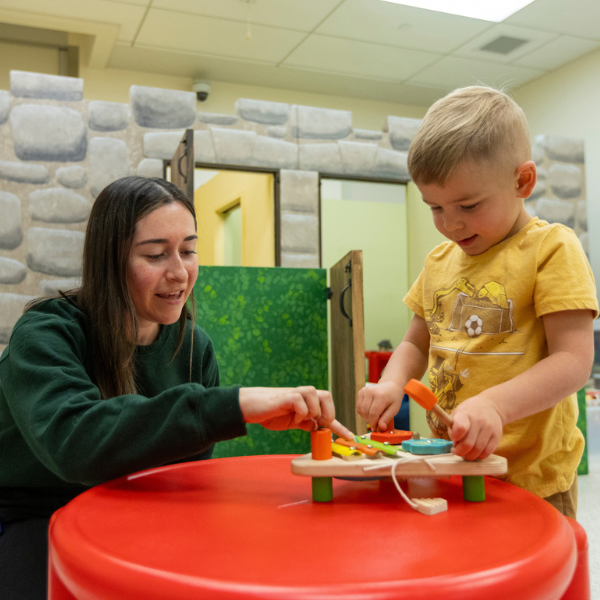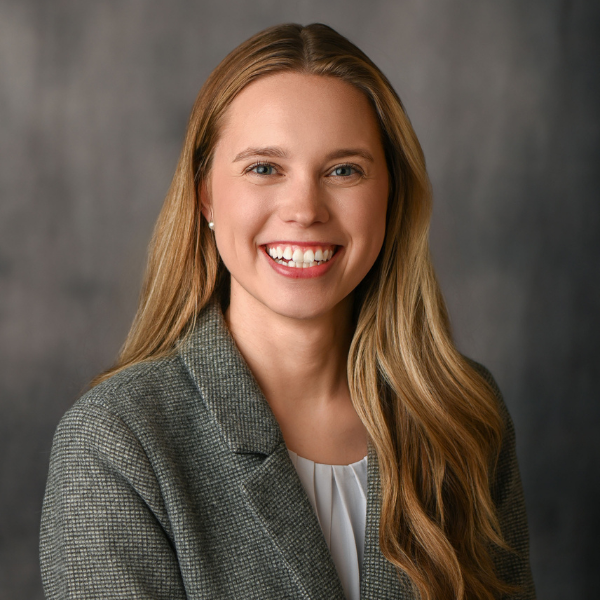From Classroom to Clinic: Research Experience Sets College of Human Medicine Students Apart
July 24, 2025
At Michigan State University College of Human Medicine, students are gaining hands-on research experience that not only enhances their education but also positions them to shape the future of health care. Even as national research funding becomes more competitive, opportunities to contribute to innovative, high-impact projects remain a defining part of the student experience.
 “As health care professionals, research allows us to better understand how to provide care for all communities and identities,” said Simi Neeluru, a second-year medical student at the College of Human Medicine. Her work involves analyzing data from Barbara Thompson, PhD, and the Social and Emotional Neurodevelopment (SEND) lab. Inside the SEND Lab, researchers study how social and emotional neurodevelopment unfolds—and how early genetic or environmental stressors may disrupt those pathways. One area of focus includes examining differences in social interaction in children with and without autism.
“As health care professionals, research allows us to better understand how to provide care for all communities and identities,” said Simi Neeluru, a second-year medical student at the College of Human Medicine. Her work involves analyzing data from Barbara Thompson, PhD, and the Social and Emotional Neurodevelopment (SEND) lab. Inside the SEND Lab, researchers study how social and emotional neurodevelopment unfolds—and how early genetic or environmental stressors may disrupt those pathways. One area of focus includes examining differences in social interaction in children with and without autism.
“Being part of the SEND lab has been an amazing opportunity for me to learn more about research being done in developmental pediatrics,” said Neeluru. “As someone who is passionate about child health equity, I really wanted early exposure to pediatric research during medical school. Participating in research at this point in my education just continues to affirm why I am here and allows me to learn important skills that I can develop throughout my career as a clinician.”
“Research permeates everything in medicine,” said Thompson. She says her students know that experiencing any part of the research world exposes them to an understanding of the many steps one takes from idea to discovery.
 The Early Mentors for Research Program (EMR-P) matches first and second year medical students with research mentors. EMR-P is offered by the College of Human Medicine Research Office. Faculty at the college and affiliated community health systems are recruited to serve as mentors for medical student projects. The Research Office then conducts a research “match” to connect mentors who signed up to medical students interested in engaging in research. In 2024-2025, more than 200 first- and second-year students were matched to research mentors through this program alone. The program has been a perfect fit for Gabby Young, a second-year medical student.
The Early Mentors for Research Program (EMR-P) matches first and second year medical students with research mentors. EMR-P is offered by the College of Human Medicine Research Office. Faculty at the college and affiliated community health systems are recruited to serve as mentors for medical student projects. The Research Office then conducts a research “match” to connect mentors who signed up to medical students interested in engaging in research. In 2024-2025, more than 200 first- and second-year students were matched to research mentors through this program alone. The program has been a perfect fit for Gabby Young, a second-year medical student.
“After being matched with Dr. Thompson, I knew that her work with the SEND lab aligned very well with my research goals and career goals of becoming a child and adolescent psychiatrist,” said Young.
Young says her work with the SEND lab has provided several opportunities to present at regional and national research conferences, interact with research participants, and gain additional mentorship that’s guided her toward achieving her professional and educational goals.
Lukila Colombo, MD, a 2025 graduate of the College of Human Medicine, had a similar opportunity to present at a conference. Colombo’s experience in the SEND lab gave her the chance to share their findings with physicians and other health professionals in the community.
 “Our main focus has always been on how these findings will make a real-world impact,” said Colombo. “I was able to share how I would take this information and make informed decisions when talking and guiding patients and their families.”
“Our main focus has always been on how these findings will make a real-world impact,” said Colombo. “I was able to share how I would take this information and make informed decisions when talking and guiding patients and their families.”
Thompson says the students bring a wealth of knowledge and fresh energy to the lab.
“My interactions and discussions with the students will sometimes reveal different ways of asking the same question, or, asking questions I hadn’t yet thought to ask. The students bring their own unique experiences and perspectives to the projects.”
Despite looming federal funding cuts, the student researchers press on, fully aware that their work addresses urgent, real-world challenges that can't wait for restored budgets or political certainty. Thompson says the student researchers are steadfast in their resilience.
“Research is pivotal to medicine, especially in regard to underserved communities…. Restricting research funding will severely impact marginalized communities, who are already underrepresented in research studies. As a result, this becomes a major public health crisis that could easily be prevented,” said Neeluru.
“At its core, research moves us forward in a more positive manner,” said Colombo.
Media contact | Emily Linnert
 In partnership with the federal government, Spartan researchers drive lifesaving breakthroughs and address society’s most pressing challenges.
In partnership with the federal government, Spartan researchers drive lifesaving breakthroughs and address society’s most pressing challenges.

